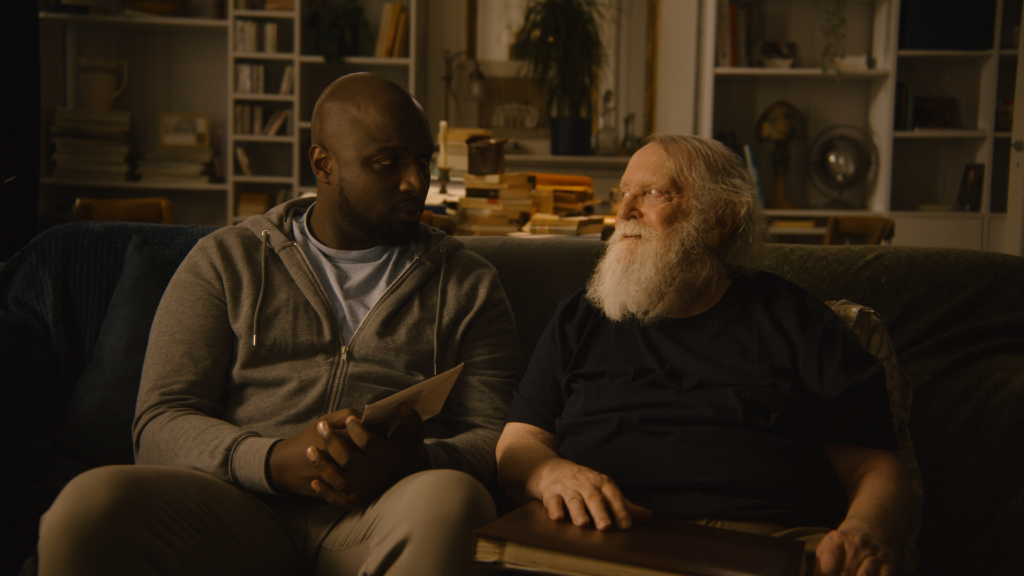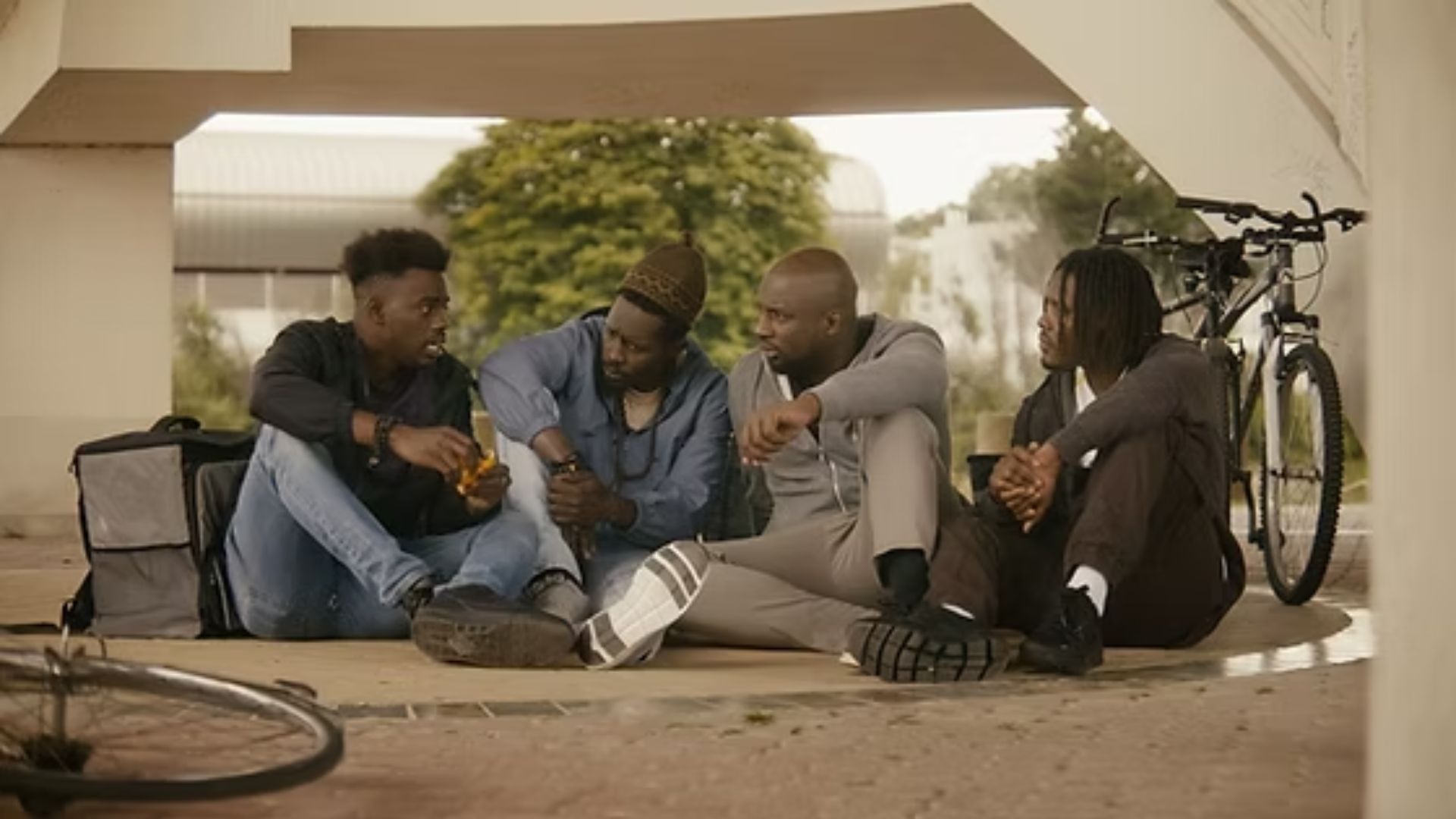I can’t count the number of times I biked the streets of Boston, sad and wondering whether my life was going to work out. There’s something peaceful about riding through the city; it’s a reminder that there’s something bigger than myself. In Where There is Love, There is No Darkness, Saidou spends the majority of his day biking through Paris, delivering groceries to customers and praying that he will make enough money to feed his wife and baby back in Senegal. For him, biking is not an escape but his livelihood.
Stevan Lee Mraovitch’s film is a beautiful tribute to family, found family, and the lengths people will go to support their loved ones. As illegal immigrants, Saidou (Oumar Diaw) and the men he came to France with are reliant on the smuggling ring who brought them into the country to provide them with both their jobs and the money they earn from those jobs. It’s an unfair bargain, and we see the pain the arrangement can cause. In addition to being alone in a new city, the men must also fight the shady characters who have full control over their lives.
I’m struck by how perfectly Where There is Love, There is No Darkness captures depression. There is a scene where Saidou and his friends bike home after suffering a major loss. The pain in their eyes says far more than words ever could. There is no need for extended dialogue or an explanation of what just happened. Instead, the background music and the sustained, close-up shots put the viewer immediately in the shoes of the characters.
The strength of the film is how comfortable it is moving slowly. The world Saidou inhabits is constantly changing. His contact is arrested, people are always ordering food, and his wife is moving closer to her due date. Despite that, the film itself is never rushed. Every shot lingers, the movements are slow, and there’s time spent on the basic daily acts of lunch and prayer. The audience has the opportunity to live in Saidou’s sadness.
That’s not to say there are no moments of positivity and hope for the future. Saidou’s relationship with his wife is heartwarming. He would truly do anything for her and just wants her to be happy and healthy. Similarly, the men in Saidou’s group have become family for each other in Paris. They keep each other’s spirits up and provide a reminder of life back in Senegal. These characters feel real and supportive—they’re people you would like to be around.

That desire to be friends with Saidou is emphasized when he meets Albert (Albert Delpy), an old man on his delivery route. The man is reclusive and sick. It’s clear Albert has given up, and something inside of Saidou propels him to stay and talk. The two become friends, and one of my favorite scenes of the movie takes place inside of Albert’s apartment. To indicate the importance of their new relationship, the filming style shifts to a handheld camera. The kitchen is saturated and warm. It’s a long overdue moment of happiness for both Saidou and Albert.
Diaw is fantastic in the lead role. He perfectly walks the line between hope and depression, embodying the character fully. I was drawn in by his portrayal of a man working for a better life for his wife and child while still having the capacity to support his friends and make new connections. This role had the opportunity to make or break the film, and Diaw rose to the occasion.
I would highly recommend this film for people looking for an indie movie that captures the spirit of the immigrant experience and the feeling of being in a new country. Lee Mraovitch’s directorial style created a sentimental film that will stick with me for some time to come.

Comments